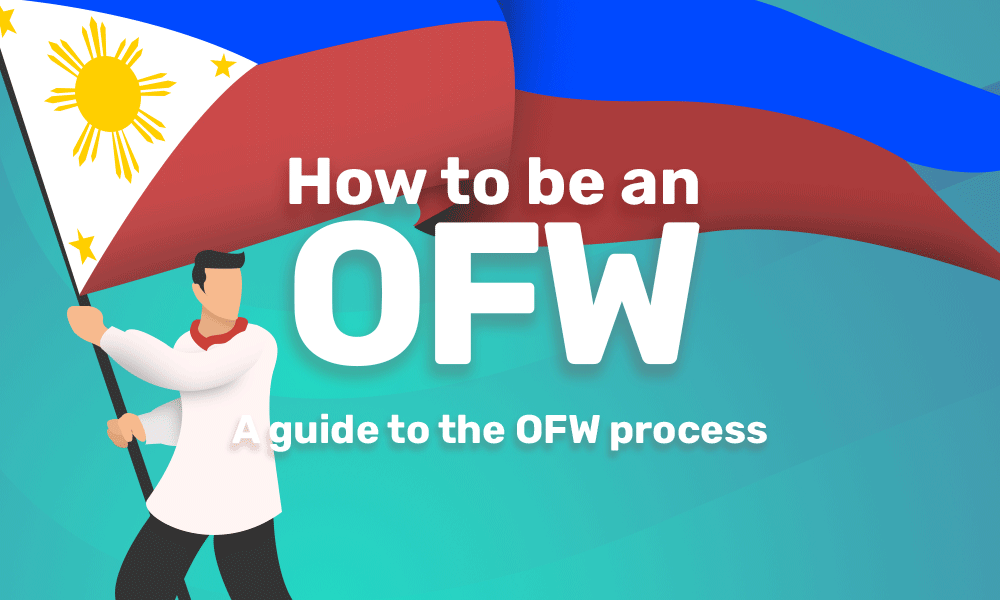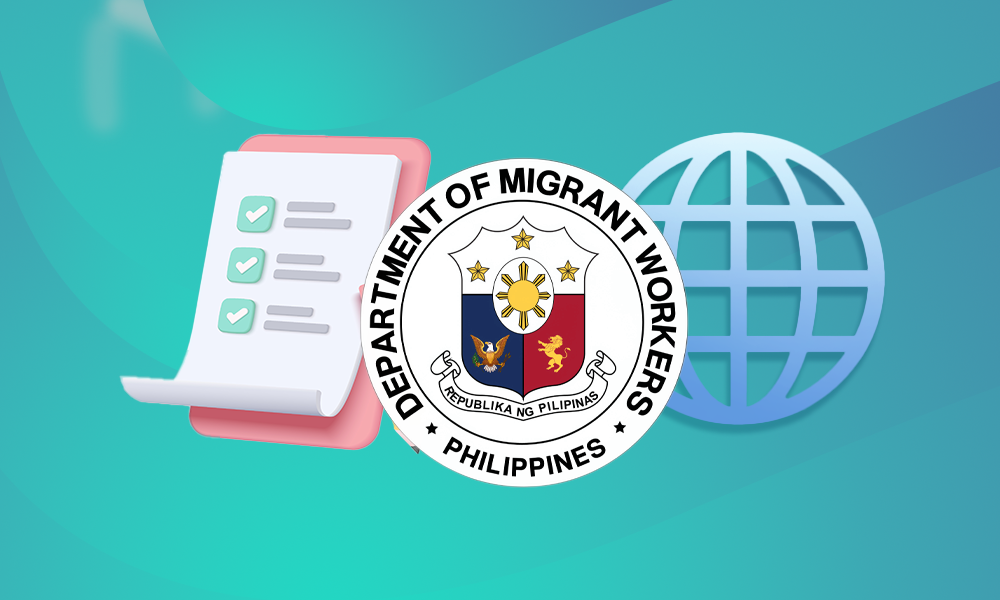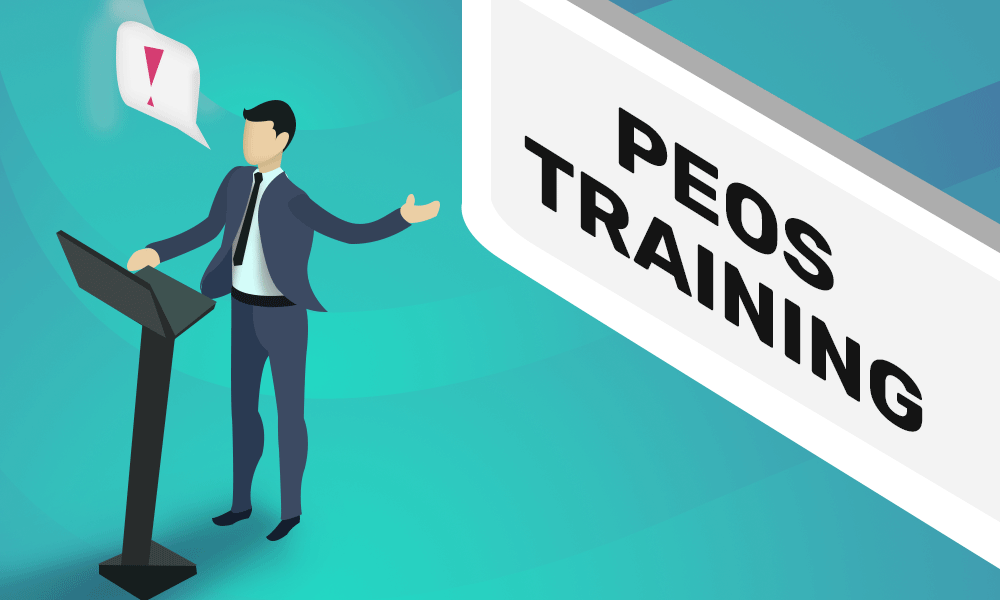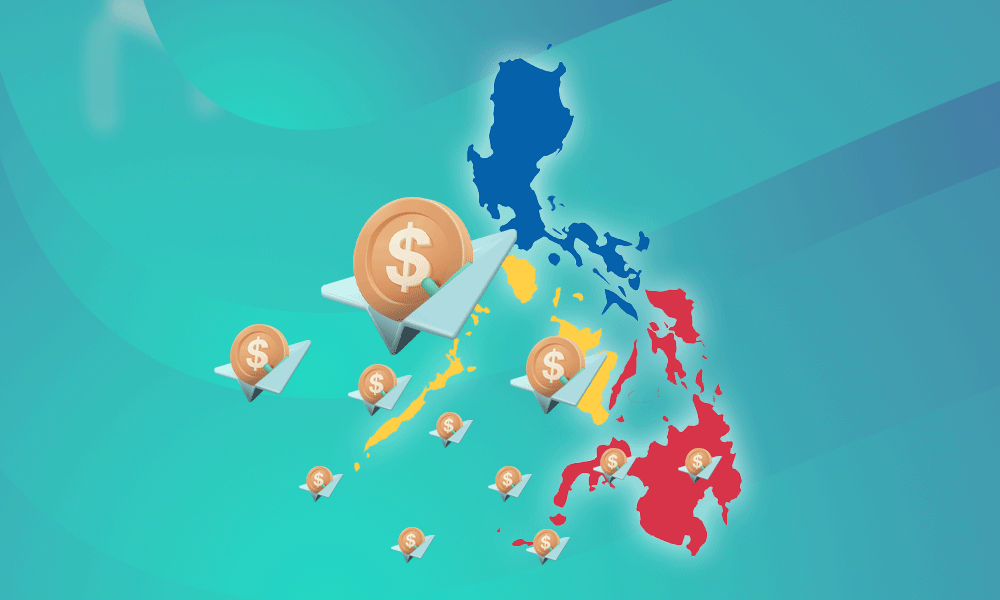
How to be an OFW: A guide to the OFW process
We all want a better life for ourselves and our loved ones. For some Filipinos, attaining this dream entails going abroad either temporarily or for good.
You may be one of many thinking of taking this route. But do you know where the road begins?
To get a better idea of the OFW process, its requirements, and its risks, read on.
What is an OFW?

OFW stands for overseas Filipino worker. This is a Pinoy who, by contract, may live and work abroad. The term OFW also includes our compatriots who have already become permanent residents of another country.
You can find OFWs all over the world, working in various fields, including construction, domestic work, healthcare, hospitality, and education.
One day, you will join their ranks too.
Starting the OFW process

Before you begin your OFW journey, you must first register with the Department of Migrant Workers (DMW). You can sign up online through the DMW’s Online Services Portal.
Once you have entered the site, look for the e-registration section and click “Let’s Go!” Then, fill out the e-form, input your log-in details, and complete your OFW profile.
After completing these steps, you will receive a unique e-registration number, which you will need for your upcoming orientation.
Attending the PEOS

After you have declared your intentions to become an OFW, you will need to attend a pre-employment orientation seminar (PEOS).
All you will need to do is log in to the PEOS website and access your training modules using your e-registration number. Do not worry, registration is free.
What to expect
Once you have accessed the PEOS website, the next step of the OFW process is to go through each lesson in this training seminar.
Designed for professionals or those in the domestic field, the eight PEOS modules cover the following topics:
- Pricest – The first topic discusses life abroad, including, how to move around a new country, how to keep in touch with your family, how much you can expect to earn, and what skills you’ll need to go far.
- Job Search – You will learn where to find overseas jobs safely and legally. This module also talks about what documents you will need to have before you can leave the Philippines.
- Forewarned, Forearmed – Illegal recruiters are always on the prowl, so this module teaches you how to spot these predators.
- The Price is Right – You will learn about all the government and agency fees an OFW needs to pay before they fly out.
- Seal the Deal – You will learn about the features of a proper overseas employment contract.
- Country Information – This module orients a prospective OFW about the country they are hoping to enter.
- Healthy and Safe – You will learn about the risks that come with being an OFW and how to keep safe.
- DMW Cares – Find out how you can stay connected with the DMW and its offices.
Getting recruited

There are two ways of finding a job in the OFW process:
- Applying through the DMW government placement branch
- Applying through a DMW-licensed recruitment agency
Applying through the DMW government placement branch
Through this process, the government recruits you in-house and matches you with openings in countries that have signed agreements with the Philippines.
For example, Germany needed 600 nurses from the Philippines in 2022. Those who met the country’s qualifications and were interested in applying could register through the DMW’s official website or their online services portal.
Successful applicants were able to secure their documentation and airline tickets at their employers’ expense.
Applying through a DMW-licensed recruitment agency
When working with a recruitment agency, always look for their DMW-issued license. You can also double-check an agency’s legitimacy, by checking the DMW’s online database on license statuses, which the department updates every two hours.
Next, choose the type of agency that specialises in the field of overseas work you would like to enter. There are two types of recruitment agencies, namely:
- Land-based agencies – These help you find work on foreign soil.
- Manning agencies – These assist seafarers who aim to board ships or are looking for work in other maritime-related fields.
Whichever you choose, make sure the agency can:
- Help you weigh your options by showing you what jobs are available for you
- Match you with the right job that fits your skills and experience
- Carefully and accurately process your documents so can legally enter and work in a new country
And always be on alert for signs of illegal recruitment.
OFW process precautions: signs you’re working with an illegal recruiter

Here are some examples of dodgy situations to keep in mind:
- You cannot find the agency in the DMW database.
- You are working with a travel agency or training centre, not a manning or land-based recruitment agency.
- The agency asks you to pay a placement fee even before you sign a work contract.
- The agency does not issue official receipts.
- The agency can only help you with a tourist visa.
- The agency is asking you to pay more than one month’s salary as a placement fee.
- The agency is asking you to pay a placement fee to work in a country that bans this practice.
- Someone approaches you and says they can speed up your job application if you pay for their services.
- Someone claiming to be an agency’s representative cannot show you a job posting for the work they are arranging for you.
- The so-called representative asks you to pass your documents or conduct transactions outside their office.
- You call the agency looking for that representative, but they say no one with that name works there.
If you are in doubt at any time during the OFW process, always consult with the DMW or contact the Overseas Workers Welfare Administration’s (OWWA) 24/7 hotline.
Working abroad: completing the OFW process

Once you have approached the DMW or found a duly accredited agency, these are the steps you will encounter in your journey as an OFW:
1. Processing your documents
When you visit the DMW or the agency, they will ask you to prepare the following documents:
- 2×2 photos
- A valid passport
- A birth certificate issued by the Philippine Statistics Authority (PSA)
- A high school or college diploma
- Your transcript of records
- Your curriculum vitae or resumé
- A contract of employment from your previous jobs, if applicable
- Clearance from the National Bureau of Investigation (NBI)
- Your marriage contract, if applicable
- Any professional certifications or licenses required by your employer
2. The screening process
At this stage of the OFW process, you will undergo interviews to see if you are the right fit for the job.
3. The medical exam
If you pass the screening, you will undergo a health check to ensure you are fit to work.
4. Contract signing
Before you seal the deal with your employer, read and understand your contract so you know your rights and responsibilities as an OFW.
5. Payments
Ensure you have paid the correct placement and government fees, including your mandatory SSS, Pag-IBIG, and PhilHealth contributions.
6. PDOS
The required Pre-Departure Orientation Seminar or PDOS prepares OFWs for life abroad by teaching them about the laws and customs of the countries where they will reside. Whether you choose to attend an online or in-person PDOS, remember this is your chance to ask any questions about your host country before you fly out.
7. Getting Your OEC or OFW Pass
You will need either document before your departure. This is how the two differ:
- OEC – Valid for 60 days, the Overseas Employment Certificate exempts OFWs from paying travel tax and airport terminal fees. You must visit the DMW in person and pay a ₱100 processing fee to retrieve this document.
- OFW Pass – Lasting throughout an OFW’s employment contract, the OFW Pass is a free alternative to the OEC and is available for download through the DMW app. Currently, it is only available for OFWs going to the United Kingdom, Saudi Arabia, the United Arab Emirates, Singapore, Hong Kong, Malaysia, Qatar, Oman, and Taiwan.
8. Departure
With your bags packed and your documents in order, it is time to head to the airport. After you have checked in and visited the terminal fee counter, show your OEC or OFW Pass at the Bureau of Immigration (BI) desk and secure your clearance to depart the Philippines.
Sending money to the Philippines

The OFW process is long and arduous; but with the right people and government agencies, you can land the right job in your target destination.
And while you are hard at work, keep your funds safe from online threats by using a secure money transfer app like Kabayan Remit. With our bank-level security features, you can be sure that your precious savings reach your loved ones in the Philippines.
Sign up for a free account today.
To learn more, you can also talk to our 24/7 bilingual support team here.
